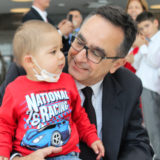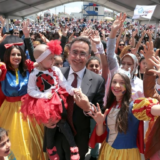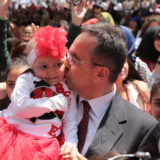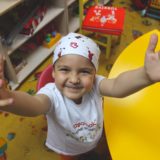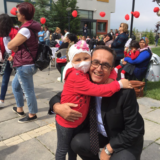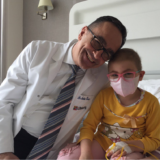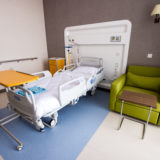DR. ÜSTÜN EZER
2017 HEALTH AWARD
Founder, LOSEV Foundation for Children with Pediatric Cancer
Ankara, Turkey
In the 1990s, Dr. Ezer was faced with a dilemma that would later spark a world-changing idea. He had a four-year-old patient who had been diagnosed with leukemia, but in spite of the seriousness of the illness and urgency of treatment, the young boy and his grandfather were not showing up for their appointments.
Perplexed, Dr. Ezer went to the young boy’s village to search for him. He eventually found the boy’s grandfather who told Dr. Ezer that the four-day treatment at the hospital would mean losing 12 Liras ($3), or four full days of income, which was just enough to support his family. Dr. Ezer promised to give him 15 Liras ($3.75) every time he brought his grandson to the hospital for treatment. For the next three years, the young boy came in for treatment until he was cured. Realizing that the young boy’s situation was a common problem, Dr. Ezer sought to provide services to all children with leukemia—not just his own patients.
LOSEV was founded in 1998 to provide access to free, life-saving treatments and a strong, holistic support system to children with leukemia and chronic blood disorders. In 2000, the Foundation established LOSANTE Children’s Hospital, the first hematology hospital for children in Turkey. In 2016, the name was changed to LOSANTE Children’s and Adult Hospital, welcoming patients of all ages. At its new campus in Ankara, the hospital now provides care in 80 different medical specialties. The facility includes a hotel where families and visitors can stay during treatment, a village for patients who do not need to stay in the hospital but need to receive on-going treatment, an elementary and secondary school, and a vocational center for parents and families. As of August 2017, 23,793 patients are registered to LOSEV and benefit from everything it provides.
The results have been striking. Before LOSEV was founded, only 22% of children with leukemia survived in Turkey. Now, thanks to intensive research, increased awareness, and an integrated approach that includes not only medical treatment but also socio-psychological support, the survival rate is increased to 92%.

